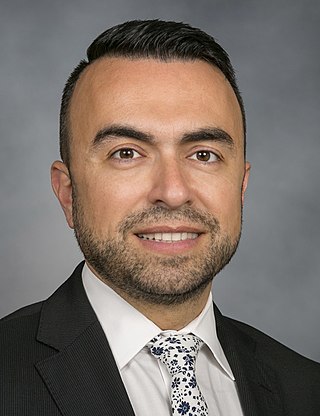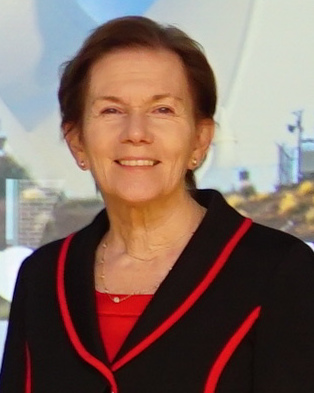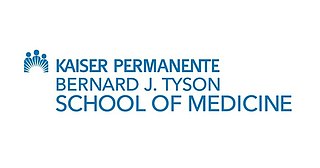
Kaiser Permanente is an American integrated managed care consortium, based in Oakland, California, United States, founded in 1945 by industrialist Henry J. Kaiser and physician Sidney Garfield. Kaiser Permanente is made up of three distinct but interdependent groups of entities: the Kaiser Foundation Health Plan, Inc. (KFHP) and its regional operating subsidiaries; Kaiser Foundation Hospitals; and the regional Permanente Medical Groups. As of 2023, Kaiser Permanente operates in eight states and the District of Columbia, and is the largest managed care organization in the United States.

Henry John Kaiser was an American industrialist who became known for his shipbuilding and construction projects, then later for his involvement in fostering modern American health care. Prior to World War II, Kaiser was involved in the construction industry; his company was one of those that built the Hoover Dam. He established the Kaiser Shipyards, which built Liberty ships during World War II, after which he formed Kaiser Aluminum and Kaiser Steel. Kaiser organized Kaiser Permanente health care for his workers and their families. He led Kaiser-Frazer followed by Kaiser Motors, automobile companies known for the safety of their designs. Kaiser was involved in large construction projects such as civic centers and dams, and invested in real estate, later moving into television broadcasting.
The term managed care or managed healthcare is used in the United States to describe a group of activities intended to reduce the cost of providing health care and providing American health insurance while improving the quality of that care. It has become the predominant system of delivering and receiving American health care since its implementation in the early 1980s, and has been largely unaffected by the Affordable Care Act of 2010.
...intended to reduce unnecessary health care costs through a variety of mechanisms, including: economic incentives for physicians and patients to select less costly forms of care; programs for reviewing the medical necessity of specific services; increased beneficiary cost sharing; controls on inpatient admissions and lengths of stay; the establishment of cost-sharing incentives for outpatient surgery; selective contracting with health care providers; and the intensive management of high-cost health care cases. The programs may be provided in a variety of settings, such as Health Maintenance Organizations and Preferred Provider Organizations.

Group Health Cooperative, formerly known as Group Health Cooperative of Puget Sound, later more commonly known as Group Health, was an American nonprofit healthcare organization based in Seattle, Washington. It was acquired by Kaiser Permanente in 2017 and now serves as the Kaiser Washington region. The new region would serve the majority of Washington state except for the Southwest Washington counties of Clark and Cowlitz, which would continue to be served by the Portland-area Kaiser Permanente Northwest.
The Vaccine Safety Datalink Project (VSD) was established in 1990 by the United States Centers for Disease Control and Prevention (CDC) to study the adverse effects of vaccines.
KFF, which was formerly known as The Kaiser Family Foundation or The Henry J. Kaiser Family Foundation, is an American non-profit organization, headquartered in San Francisco, California. It prefers KFF, which is its business operating name, to reduce confusion because it is not affiliated with Kaiser Permanente and it is no longer a foundation. KFF states that it is a non-partisan organization focused on health policy. It conducts its own research, polling, journalism, and specialized public health information campaigns. Its website has been heralded for having the "most up-to-date and accurate information on health policy" and as a "must-read for healthcare devotees."
Sidney R. Garfield was an American physician and a pioneer of health maintenance organizations. He co-founded the Kaiser Permanente healthcare system with businessman Henry J. Kaiser. He graduated from the University of Iowa College of Medicine in 1928, which is now called the Roy J. and Lucille A. Carver College of Medicine.
Christine K. Cassel is a leading expert in geriatric medicine, medical ethics and quality of care. She is planning dean of the new Kaiser Permanente School of Medicine. Until March 2016, she was president and CEO of the National Quality Forum. Previously, Cassel served as president and CEO of the American Board of Internal Medicine and the ABIM Foundation.
An integrated delivery system (IDS), also known as integrated delivery network (IDN), is a health system with a goal of logical integration of the delivery (provision) of health care as opposed to a fragmented system or a disorganized lack of system.
Network for Excellence in Health Innovation (NEHI), formerly New England Healthcare Institute is a member-based, non-partisan research and policy organization.

Bechara Choucair is a Lebanese-American physician and public health advisor who is the chief community health officer of Kaiser Permanente. He was the senior vice president of safety net and community health at Trinity Health and served as the commissioner of the Chicago Department of Public Health from 2009 to 2014.
The Scandinavian-American Hall of Fame (SAHF) was established in 1984 in Minot, North Dakota, by the Norsk Høstfest Association. The Scandinavian-American Hall of Fame is "an enduring means of honoring the persons of Scandinavian descent in North America who have achieved greatness in their fields of endeavor and/or whose efforts have contributed significantly to the betterment of humankind. Each year a handful of noteworthy individuals of Danish, Icelandic, Finnish, Norwegian or Swedish descent are inducted into the Scandinavian-American Hall of Fame, which is held in conjunction with Norsk Høstfest, the annual 5-day fall festival celebrating Scandinavian heritage located in Minot, North Dakota.
This article summarizes healthcare in California.

Bernard J. Tyson was an American health executive. He was the CEO of integrated managed care consortium Kaiser Permanente, the largest such organization in the United States, which provides health care to 12 million people.

Donna Lynne is the chief executive officer of Denver Health. She was the senior vice president and chief operating officer of Columbia University Irving Medical Center before joining Denver Health in September 2022. Lynne is a member of the Democratic Party who served as the 49th Lieutenant Governor of Colorado, from 2016 to 2019. She also served in a dual capacity as the chief operating officer of the State of Colorado. She was appointed to the position by Colorado governor John Hickenlooper on March 23, 2016, and was confirmed by the Colorado House of Representatives and the state Senate on May 4, 2016. Lynne replaced the outgoing lieutenant governor, Joseph A. Garcia. Prior to her appointment, Lynne was an executive with Kaiser Permanente.

The Kaiser Permanente Bernard J. Tyson School of Medicine is a medical school associated with the Kaiser Permanente health system and located in Pasadena, California. The school matriculated its inaugural class of 50 students in July 2020. In November 2019, the school was renamed in honor of late Kaiser Permanente Chairman and CEO Bernard J. Tyson.
Mark Schuster is the Founding Dean and CEO of the Kaiser Permanente Bernard J. Tyson School of Medicine located in Pasadena, California. Schuster assumed his position in 2017, and the school opened in July 2020. Schuster is a physician-scientist known for his work on child, adolescent, and family health.

The Alliance of Health Care Unions (Alliance) is a union federation of 21 local unions representing roughly 52,000 Kaiser Permanente (KP) employees. The Alliance is one of two union federations that are part of the largest and longest running Labor Management Partnership in the U.S. In 2021, more than 40,000 Alliance members were on the verge of the largest open-ended healthcare strike over concerns of short staffing and a two-tier wage system proposed by KP. On November 13, 2021, the Alliance and KP reached an agreement that preserved leading wages and benefits and defeated the two-tier system.

Morris Frank Collen was founder of the Kaiser Permanente Division of Research and an original member of the Permanente Medical Group, pioneering developer of Automated Multiphasic Health Testing (AMHT) systems, and Electronic Health Records (EHRs) for Public Health and Clinical Screening, serving as a model for pre-paid healthcare at the national level. Collen was a Founder of the American College of Medical Informatics (ACMI) in 1984, and the American Medical Informatics Association (AMIA) in 1989. The Morris F. Collen Award of Excellence was established in his honor by ACMI in 1993. In 1971 Collen was elected a member of the Institute of Medicine of the National Academy of Sciences.









